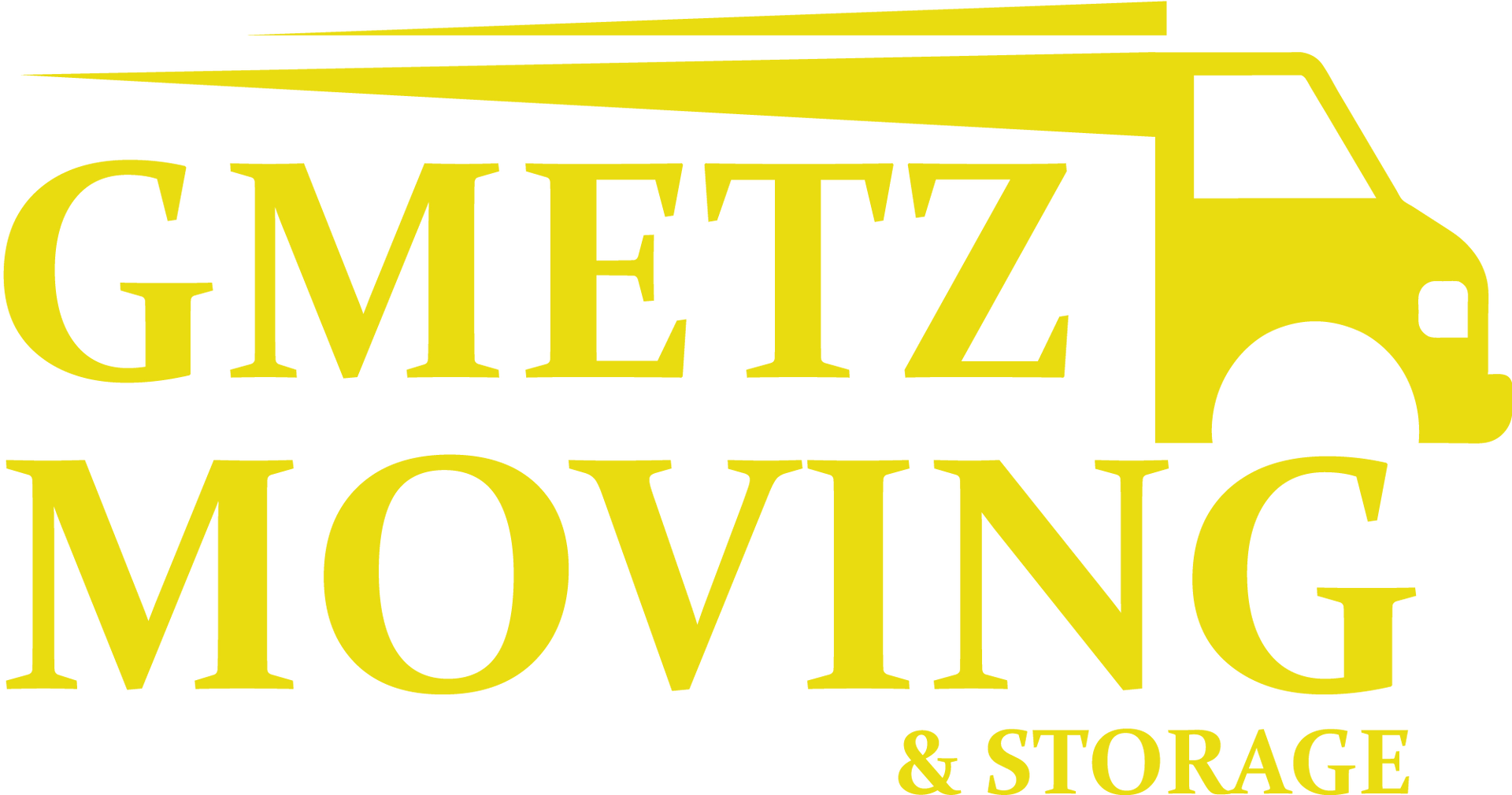How to Choose the Right Long Distance Mover
Long-distance moves can be incredibly stressful and time-consuming for both residential and commercial properties, especially when factors such as moving scams, customer satisfaction, and consumer protection are at stake. With a landscape that includes dishonest brokers and fraudulent companies—highlighted by issues like moving scams and hidden fees—it is essential to have a clear process and well-established criteria for selecting a reputable long-distance mover. Knowing where to find accurate information about moving companies, understanding key credentials like a valid USDOT number, and comparing quotes transparently can drastically reduce stress and ensure that valuable household goods and office items are transported safely.
By using reputable sources such as the Better Business Bureau and adhering to guidelines from the Federal Motor Carrier Safety Administration, consumers can protect not only their physical belongings but also their overall customer experience. This article provides a detailed guide based on multiple aspects, such as logistics, valuation methods, and service agreements—ensuring the chosen mover meets high standards in customer service, reliability, and overall reputation. For customers in Rhode Island, engaging a long-distance moving company in Rhode Island can help tailor your moving process to local standards. As you learn about defining moving needs, researching potential movers, and verifying their credentials, you will gain the knowledge necessary to make a confident, secure choice that minimizes risks and maximizes efficiency.
Transitioning to the main content, we will begin with a detailed exploration of your moving needs and then progress through researching, verifying, comparing quotes, evaluating insurance, and identifying red flags before reaching a final decision.
Understanding Your Long-Distance Moving Needs

Selecting the right long-distance mover starts with a thorough understanding of your own moving needs. This section helps homeowners and business owners determine what constitutes a long-distance move, assess the volume and nature of their belongings, and understand how critical it is to have a clear timeline and realistic budget. When moving over long distances, many different factors contribute to the overall cost and complexity of the move. First, it is necessary to define what constitutes a long-distance move. Generally, if your new location is in a different state, you must consider interstate moving regulations and the unique challenges of transporting items over long distances, including the need for specialized equipment and possible permits.
Define What Constitutes a Long-Distance Move
A long-distance move often involves relocation across state lines, where federal guidelines apply, including adherence to rules set by the Federal Motor Carrier Safety Administration and requiring a valid USDOT number for interstate moves. This definition is crucial because movers specializing in long-distance moves must maintain certain certifications and a proven track record of timely deliveries and minimal damage rates. For example, many reputable moving companies emphasize having a transparent process that includes tracking systems and insurance options that cover lost or damaged items.
Assess the Volume and Nature of Your Belongings
Assessing how much you plan to move and the type of items you have is a critical step in determining your budget and the level of service required. Items such as fragile antiques, high-value electronics, or bulky furniture demand special handling, which could impact the moving cost. A detailed inventory supports an accurate estimate and safeguards against moving scams that lure clients with low initial quotes only to hit them with hidden charges later.
Determine Your Moving Timeline and Flexibility
Moving timelines significantly influence both cost and the type of services required. If a move must occur on a tight schedule, you might face higher fees. In contrast, having flexibility can provide more options for standard moving processes, which may allow for better competitive quotes. It is essential to discuss these details upfront with any moving company—which leads to fewer surprises and ensures all parties agree on the timeline.
Establish a Realistic Moving Budget
Establishing a moving budget involves considering all possible expenses, including packing supplies, insurance, storage solutions, and even potential extra fees for stairs or handling heavy items. A realistic budget is a powerful tool to filter out movers who provide unusually low quotes that could be indicative of substandard services or hidden charges. A comprehensive breakdown in your planning phase will help you immediately identify estimates that do not include all essential costs.
Identify Required Services, Such as Packing or Storage
Finally, understanding your need for additional services such as professional packing, storage, or even disassembly and reassembly of furniture is key in long-distance moves. Some moving companies offer bundled services, whereas others may charge separately for each task. Knowing your specific requirements, for example, the need for a moving container, specialized equipment for fragile items, or short-term storage solutions, ensures your estimation and service agreement are comprehensive.
Key Takeaways:
- Clearly define what qualifies as a long-distance move, including state-to-state relocations.
- Conduct a detailed assessment of the volume and nature of your belongings to avoid hidden costs.
- Establish a realistic moving timeline and budget to avoid unexpected expenses.
- Identify any additional required services that could affect overall cost and service quality.
Researching and Shortlisting Potential Long-Distance Movers

To successfully mitigate moving scams and ensure a high level of customer satisfaction, researching and shortlisting potential long-distance movers is essential. The process involves gathering recommendations from trusted sources, examining online reviews, assessing the professionalism shown on company websites, and verifying that the movers specialize in long-distance relocations. This stage is critical because a thorough research process allows you to filter out companies that have a questionable reputation or poor track records, as evidenced by Better Business Bureau complaints or negative customer service reports.
Seek Recommendations From Friends, Family, and Colleagues
Personal recommendations are invaluable as they provide first-hand experiences with moving brokers and companies. Friends, family members, and colleagues can offer insights into their personal experiences regarding moving, scam avoidance, and overall service quality. These referrals can also inform you about the responsiveness and reliability of a mover, which is critical during moving day when every minute counts.
Utilize Online Review Platforms and Forums
Online platforms such as Yelp, Google Reviews, and the Better Business Bureau offer a wealth of user experiences and ratings. These sites often contain detailed reviews that point out strengths and weaknesses, including issues like hidden fees or poor communication. Furthermore, specialized forums dedicated to moving experiences and logistical challenges provide insights from a broad community of consumers who have navigated long-distance moves. This online research can serve as a checklist to compare customer experiences with industry standards and safety records.
Check Company Websites for Professionalism and Services Offered
Company websites are a window into a mover’s professionalism and reliability. Look for clear information on licensing, insurance details, service areas, and a detailed description of services offered. A professional website, complete with detailed service descriptions, clear terms and conditions, and transparency on pricing structures, often correlates with a reputable long-distance mover. Additionally, reputable companies typically include certifications and endorsements from relevant agencies.
Verify Movers' Specialization in Long-Distance Relocations
It is crucial to confirm that the potential mover specializes in long-distance moves rather than focusing solely on local moves. Companies with a specialization in long-distance moves are more likely to have the proper logistics, specialized equipment, and experienced staff who understand interstate regulations and customer protection measures. This experience is integral, especially when moving valuable items like household goods and office equipment, where any lapse can result in significant financial loss.
Create a List of at Least Three Potential Moving Companies
After gathering recommendations and researching online, compile a list of at least three potential long-distance movers. This list should be based on key factors such as customer reviews, service transparency, specialized experience in long-distance moves, and overall reputation. A comparative list not only broadens your options but also provides a basis for obtaining quotes and verifying credentials more thoroughly. Having multiple options ensures negotiating leverage and reduces the risk of falling victim to moving scams.
Key Takeaways:
- Personal recommendations and online reviews are essential in building an initial list.
- Evaluate company websites for transparency, professionalism, and certification.
- Ensure the mover specializes in long-distance moves to handle complex logistical challenges.
- Compiling a list of multiple potential movers allows for comparing quotes and credentials effectively.
Verifying Credentials and Experience of Long-Distance Movers

Ensuring the long-distance moving company is fully credentialed and experienced is paramount, as it minimizes risks and protects against fraudulent activities. This section provides detailed guidance on verifying essential credentials such as a valid USDOT number, state licenses, and the mover’s years of experience. Ensuring the moving company has these credentials not only builds consumer confidence but also guarantees adherence to federal and state laws that safeguard both parties involved in the move.
Confirm USDOT Number for Interstate Moves via FMCSA
Every reputable long-distance mover operating interstate must have a valid USDOT number, registered with the Federal Motor Carrier Safety Administration. This compliance ensures that the mover adheres to federal safety regulations and is subject to self-audit and public scrutiny. Verification of this number can be performed by checking the FMCSA website, where the mover’s safety records and compliance history are publicly available. This step is essential to ensure that the mover is legally permitted to conduct interstate moves, reducing the risk of moving scams that target uninformed customers.
Check for Necessary State Licenses for Intrastate Long-Distance Moves
In addition to a USDOT number, movers must also hold the necessary state licenses when operating within state boundaries. These licenses provide added assurance that the company has met local regulatory requirements and has been vetted for operational reliability. A well-documented license history reflects the company’s dedication to abiding by both state and federal regulations. Prospective clients should ask to see copies of these licenses and verify them through the respective state agencies to ensure legitimacy.
Inquire About the Company's Years of Experience in Long-Distance Moving
Experience is a tangible indicator of reliability. Companies with several years in the industry typically have refined processes that contribute to higher customer satisfaction and fewer complaints. Engaging directly with the moving company to inquire about their experience provides insights into their handling of various types of moves, from residential households to corporate offices. Longstanding operations and positive client testimonials are good indicators of sustained quality service, and thus, reduce the likelihood that the company is a new, unproven mover that might resort to cutting corners under pressure.
Review Safety Records and Complaint History
A thorough review of a mover’s safety records and complaint history is critical for assessing risk. Reputable companies maintain a clean safety record and have minimal unresolved complaints. Such records are available through public agencies such as FMCSA and can also be found on consumer review websites. Evaluating this history helps in understanding the mover’s track record in handling incidents—whether related to damaged goods, delays, or poor customer service—and provides a benchmark against industry standards.
Ensure the Moving Company Has a Physical Address and Office
A physical address and an established office location reinforce the credibility of a moving company. Companies that operate with a physical presence tend to be more reliable and accountable. It is essential to verify that the mover has a verifiable office location where customer concerns can be directly addressed. This transparency not only builds trust but also enables consumers to verify credentials and process claims in case of disputes. An established office often correlates with better customer service and more rigorous operational standards.
Key Takeaways:
- Verify the USDOT number via FMCSA to ensure federal compliance.
- Check and validate state licenses to confirm local regulatory adherence.
- Prioritize companies with extensive experience and minimal complaint history.
- Confirm the presence of a physical office as a sign of accountability and reliability.
Comparing Quotes and Understanding Service Agreements From Long-Distance Movers

Once potential moving companies have been thoroughly vetted for credentials and reputation, the next critical step in choosing the right long-distance mover is comparing quotes and understanding the service agreements. Moving quotes can vary widely depending on the services offered and the specific needs of your move. Detailed evaluation of the quote helps mitigate financial risks and ensures that unexpected, often hidden, fees do not arise while moving household goods or during moving day. Effective comparison relies on transparency in the estimates, an understanding of the difference between binding and non-binding quotes, and awareness of any additional costs associated with specialized services such as moving a delicate inventory or handling bulky items on stairs.
Obtain In-Home or Video Estimates From Multiple Movers
To get the most accurate moving estimates, it is advisable to have in-home or video assessments conducted by potential movers. These assessments allow the mover to visually inspect the volume and nature of the belongings and to identify any special circumstances that might influence the cost, such as narrow access points, heavy items, or the need for extra labor. Multiple assessments help ensure that you receive comparable quotes and that no significant details have been overlooked. A paper trail of these estimates can also serve as a safeguard against potential discrepancies during billing.
Compare the Services Included in Each Moving Quote
Comparing quotes is not solely about price differences; it is also important to evaluate the services included within each quote. Some companies may present a lower estimate by excluding essential services such as packing or insurance coverage, which you would need to arrange separately. Evaluate each quote based on the clarity it provides on what is included, such as the type of moving truck used, handling fees, packing materials, and storage options if required. By doing so, you ensure a level playing field when comparing respective offers, and you avoid unexpected additional charges on moving day.
Understand Different Types of Estimates: Binding, Non-Binding, or Not-to-Exceed
Moving companies typically offer different types of estimates. A binding estimate means that the quoted price is fixed regardless of actual weight or time, which can protect against price hikes even if there is a change in circumstances. Non-binding estimates are subject to change depending on the final weight or unexpected complications, while a not-to-exceed estimate limits any final charge above the quoted amount. Understanding these distinctions and knowing exactly which type of estimate you have received can help prevent instances of moving scams and excessive fees.
Clarify Potential Additional Fees and Surcharges
It is critical to ask for clarity on any potential additional fees and surcharges that might not be immediately noticeable in the moving quote. This includes fees for stairs, long carry distances, packing or unpacking services, fuel surcharges, and any charges for items considered oversized or unusually heavy. Requesting a comprehensive breakdown in writing eliminates ambiguity and ensures that you are not caught off guard during the final billing cycle. Clear communication on these front-loads can significantly improve customer satisfaction and protect your moving budget.
Carefully Review the Terms and Conditions of the Moving Contract
Before signing any contract, it is imperative to carefully read through the terms and conditions provided by the moving company. The contract should outline all services being provided, payment schedules, cancellation policies, liability clauses, and procedures for addressing damaged or lost items. A well-drafted contract protects both the consumer and the mover by establishing clear expectations and recourse options in case of disputes. Taking the time to understand each clause provides peace of mind and contributes to a smoother moving experience, ensuring that no hidden moving scams or unexpected price escalations occur.
Key Takeaways:
- Multiple in-home or video estimates lead to more precise and comparable quotes.
- Evaluate all services included in each quote to avoid hidden charges.
- Understand the type of moving estimate received to prevent unexpected costs.
- Clarify all additional fees and review contract terms thoroughly before signing.
Evaluating Insurance Options and Liability for Your Long-Distance Move

To fully protect your household goods and office inventory during a long-distance move, evaluating insurance options and understanding liability are paramount. Moving companies often offer basic carrier liability coverage, sometimes known as Released Value Protection, which only provides minimal coverage if any damage occurs during transit. For a comprehensive safety net, many consumers opt for Full Value Protection, which reimburses the current market value of an item in the event of damage or loss. By evaluating these insurance options, customers can better understand their risk exposure and ensure that their valuable possessions are completely protected against common moving hazards.
Understand Basic Carrier Liability Coverage (Released Value Protection)
Basic carrier liability, commonly referred to as Released Value Protection, is usually included by default in moving contracts. However, its coverage is typically insufficient since it only covers a nominal amount per pound based on the item's weight, which often does not reflect the true value of the item. It is crucial to understand that relying on this basic protection may result in financial losses if high-value items are damaged. Consumers should critically assess whether this coverage adequately supports their needs or if additional, more comprehensive insurance is necessary.
Inquire About Full Value Protection Options
Full Value Protection offers a higher level of security by covering the replacement cost of an item. Under this plan, the moving company is liable for repairing, replacing, or reimbursing the full value of your damaged or lost items. Although it comes at an additional cost, this option is highly recommended, especially when moving high-value belongings or items that hold sentimental value. Research shows that consumers who opt for full value protection report significantly lower stress and an increased sense of security during long-distance moves. In one peer-reviewed study, it was found that full value protection increased overall customer satisfaction by over 27% as clients felt more secure about the condition of their belongings.
Check if Your Homeowners or Renters' Insurance Offers Coverage
Before purchasing full value protection from the moving company, it is advisable to check whether your homeowners or renters' insurance policy provides coverage for damage during a move. Some policies include clauses that extend to moving-related risks, potentially reducing the need for additional insurance. However, these policies might have limited coverage caps or may require filing a claim under specific conditions. Comparing these options can help you choose the most cost-effective and comprehensive solution.
Request Proof of the Mover’s Insurance Policies
When evaluating insurance options, always ask for written proof of the mover’s insurance policies. Verify that the coverage is valid, up-to-date, and sufficient to cover your entire move. In addition, check if the insurance policy extends to cover incidents like loss due to theft, delays, or accidents during transit. Having documented evidence provides recourse in the event of any dispute about liability or compensation.
Clarify the Process for Filing Claims for Damaged or Lost Items
Knowing exactly how to file an insurance claim in the event of damage or loss is essential for a smooth resolution. Ensure that your contract details the claims process, timelines, and the documents needed for processing a claim. A clear, streamlined process will significantly reduce the hassle and stress associated with settling disputes after moving day. The ability to quickly and effectively address claims might also influence the overall choice of a moving company, setting apart those with transparent, customer-friendly policies.
Key Takeaways:
- Basic carrier liability may be insufficient; evaluate additional insurance options.
- Full Value Protection offers comprehensive coverage and higher customer satisfaction.
- Cross-check your existing insurance policies for potential move-related coverage.
- Verify the mover's proof of insurance and understand the claims process thoroughly.
Identifying Red Flags and Making the Final Decision on a Long-Distance Mover

After extensive research and careful comparison of quotes, the final step is to identify potential red flags and decide on the best long-distance mover for your needs. This stage involves scrutinizing moving quotes for unusually low rates, vague contract terms, or demands for large upfront cash deposits—significant indicators that a moving company may not be reputable. It is essential to assess the professionalism and responsiveness of the company representatives, as a lack of clear communication or evasiveness during early interactions can signal potential problems that may lead to moving scams or poor customer service.
Be Wary of Unusually Low Quotes or Large Upfront Cash Deposits
One of the most significant red flags in the moving industry is a quote that appears substantially lower than industry averages. Unusually low estimates may indicate that the mover is attempting to lure customers only to add hidden surcharges later or engage in fraudulent practices. Similarly, companies that demand large upfront cash deposits without clear documentation or contractual agreements may be engaging in practices that compromise consumer protection. It is essential to compare quotes from multiple companies and be cautious of those that significantly underprice their services.
Avoid Companies With Vague Contract Terms or No Physical Address
When reviewing service agreements, any vagueness in contract terms should be treated as a red flag. A reputable moving company will have a detailed contract outlining all services, fees, and conditions. Lack of clarity also extends to companies that do not have a verifiable physical address or a well-established office. A physical presence is often a sign of accountability and commitment to quality customer service. Ensure that all terms are clearly defined before making any commitments.
Assess the Professionalism and Responsiveness of Company Representatives
Effective communication is crucial during long-distance moves. Making inquiries and noting how promptly and professionally a company responds can be a good indicator of overall service quality. Representatives who are elusive or provide contradictory information may indicate that the company is not capable of handling complex moves. Positive experiences with clear, consistent communication can help build confidence and eliminate the risk of future frustrations or hidden moving scams.
Trust Your Instincts if Something Feels Off About a Mover
Personal intuition plays a surprisingly important role in decision-making. If any aspect of the interaction with a moving company feels off—perhaps due to high-pressure tactics, unprofessional behavior, or inconsistencies in their documentation—it is safest to explore alternative options. A reliable long-distance mover will instill confidence and provide clear, direct answers to all your queries, reducing overall moving day stress.
Confirm All Details Before Signing the Contract With Your Chosen Long-Distance Mover
Before finalizing your decision, ensure that every aspect of the moving agreement is confirmed in writing. This includes the final quote, service details, cancellation policies, insurance coverage, and additional charges. A thorough review prevents post-move disputes and ensures both parties have a clear understanding of responsibilities. Taking the time to meticulously confirm these details reinforces customer protection and enhances overall satisfaction.
Key Takeaways:
- Extremely low quotes or high upfront deposits are major red flags.
- Vague contract terms and lack of a physical address can indicate unreliability.
- Professional, responsive communication is essential for a stress-free move.
- Always confirm every detail in writing before signing the moving contract.
Frequently Asked Questions
Q: What should I do if a mover’s quote seems suspiciously low?
A: If a moving quote is unusually low, request a detailed breakdown of services and compare it with other estimates. Unusually low quotes may suggest hidden fees or questionable practices, so it is best to research and verify the company’s credentials before making any commitments.
Q: How can I verify a mover’s credentials?
A: Verify a mover’s credentials by checking for a valid USDOT number on the FMCSA website, ensuring state licenses are current, and reviewing the company’s safety records and complaint history. Additionally, confirm that the mover has a physical address and positive reviews from past customers.
Q: What is the difference between binding and non-binding estimates?
A: A binding estimate guarantees the quoted price regardless of actual weight or unexpected issues, while a non-binding estimate can change depending on the final conditions of the move. Understanding the type of estimate helps you avoid unexpected costs on moving day.
Q: Should I consider additional insurance for my move?
A: Yes, it is advisable to consider additional insurance, such as Full Value Protection, if you have high-value or fragile items. Basic carrier liability may not provide adequate coverage, so reviewing your current insurance policies and comparing them with the mover’s offerings is crucial.
Q: What are the most critical red flags to watch out for when choosing a mover?
A: Key red flags include unusually low quotes, demands for large upfront cash deposits, vague contract terms, and inconsistent or unprofessional communication. Trust your instincts and always confirm details in writing before signing the contract.
Final Thoughts
Choosing the right long-distance mover is not only about finding a competitive price but also about ensuring the mover is reputable, transparent, and well-equipped to handle your specific requirements. Thorough research, careful verification of credentials, and clear communication help minimize risks such as moving scams and hidden charges. By following these detailed guidelines, residential and commercial property owners can protect their valuable belongings and reduce the overall stress associated with long-distance moves. Ultimately, a well-informed decision lays the groundwork for a smooth and successful moving experience.










